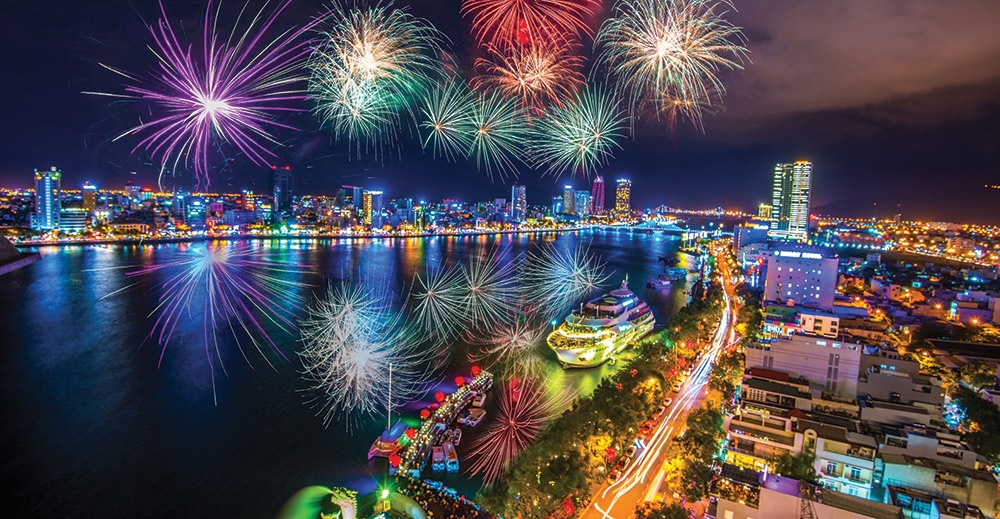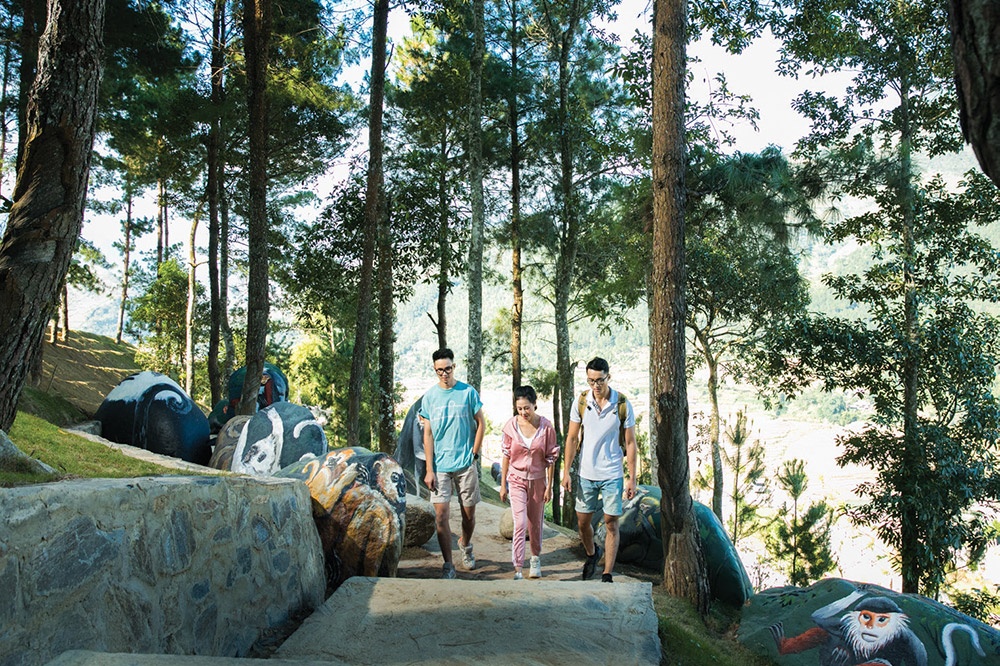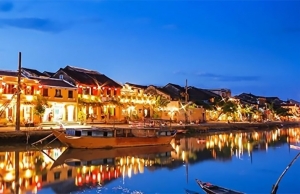Responsible and sustainable direction giving wings to Vietnamese tourism development
 |
| Responsible and Sustainable direction giving wings to Vietnamese tourism development |
The survey results also indicate that up to 57 per cent of respondents said that they have had a different thought about tourism is done, especially because it is related to the local economy, community, culture, and environment.
Responsible and sustainable tourism is becoming more important, and the needs and preferences of tourists is also changing. Instead of noisy and prosperous tourist destinations, many people are looking for peaceful countryside and experiences of discovery, close to nature and good for health, in accordance with the projects on development of national parks and protected areas in Vietnam.
Among the sustainable tourism models often mentioned in recent years, models that focus on exploiting simple and healthy natural experiences such as agritourism, farmstay, or glamping are special models to attract the attention of both tourists and investors.
As a model of farm tourism, farmstays and glamping are located only on large plots of land, currently mainly concentrated in the localities of Lao Cai, Phu Tho, Quang Ninh, Hoa Binh, and Bac Ninh. Around Hanoi, Ba Vi and Soc Son have become the capitals of farmstays.
These are all areas with favourable traffic conditions, unique cultural factors, and favourable natural conditions. Tourists for farmstay and glamping are also often elderly, international guests, families living in the city, or students wishing to experience rural life and immerse themselves in nature.
 |
In the context of big cities like Hanoi, Ho Chi Minh City, and Danang being increasingly polluted, farmstays and glamping offer a fresh environment that can prolong the stay of tourists and contribute to the development of the local economy.
They also bring a great source of revenue for investors because this model can also make money from agricultural products, livestock, and cooking, in addition to accommodation.
Moreover, the model of rural tourism associated with farmstays also solves post-pandemic issues including population fluctuations caused by the labour force moving from the city to the countryside, creating livelihoods for local people to feel secure to live and do business in their native land.
Grasping the needs of visitors, Rustic Hospitality Group over the years has focused on consulting, designing, and operating sustainable green tourist resorts with the farmstay model with the goal of promoting potential and agricultural resources in Vietnam, creating livelihoods for local communities, and supporting the economic development of the regions where the brand is present.
We aim to design tourism products with poetic countryside beauty – simple but not sketchy, rustic but not lacking in sophistication. Our products all use local materials such as raw wood and stone, symbolising the harmony of nature, ensuring to bring customers a feeling of relaxation in the soul and towards health for visitors.
Currently, we have three resorts – Mekong Rustic Cai Be, Mekong Rustic Can Tho, and Ninh Binh Rustic. In 2023, we plan to put into operation Mekong Rustic Riverside in Cai Lay district of Tien Giang to meet the needs of tourists who have a higher ability to pay but love the sophistication of products associated with nature.
However, Rustic Hospitality Group, and tourism businesses with the same model in general, are facing certain difficulties. The first is that Vietnam’s tourism industry does not have an overall policy and action plan to build and develop responsible tourism products, as well as a communications strategy for this type of product.
We have not yet carried out specific target market research on responsible tourism types to change products and build appropriate distribution channels. In addition, the operation and management capacity of community-based tourist attractions is still very limited, while Vietnam’s tourism industry does not have a common development policy or regulations in many localities, especially related to community and responsible tourism.
Looking at neighbouring countries, Vietnam can learn lessons from Thailand, a neighbouring country and also a direct competitor. By the end of 2022, Thailand officially welcomed 10 million international visitors with a total revenue of up to $14 billion, far behind the plan even though it opened slower than Vietnam. The rate of international visitors returning to Thailand also reached an average of 70 per cent, while Vietnam is only at 25-30 per cent.
This achievement stems from the reason that Thailand considers tourism as a spearhead economic sector and develops a variety of related products and activities, including eco-tourism and responsible tourism. In addition, this country also developed a master plan from human resource training, product development, market research, and product communication, and has close coordination between stakeholders to achieve the goal.
I think that with its potential, Vietnam has many opportunities to develop successful tourism like Thailand if it finds the right direction along with the enthusiastic participation from management units and businesses. And in that development journey, only responsible tourism products can bring lasting value and create special imprints for the Vietnamese tourism industry.
 | Vietnam ranks 96th on global sustainable tourism list A Euromonitor International report ranked Vietnam as 96th of 99 countries for sustainable tourism. |
Bobby Nguyen, CEO, Rustic Hospitality Group
What the stars mean:
★ Poor ★ ★ Promising ★★★ Good ★★★★ Very good ★★★★★ Exceptional
Related Contents
Latest News
More News
- Visa data highlights five key payment and travel trends in Vietnam for 2026 (January 14, 2026 | 10:42)
- New Year tourism receipts top $40m in key cities (January 06, 2026 | 08:36)
- Vietnamese passport climbs on global ranking (December 16, 2025 | 08:00)
- Manila becomes a new check-in destination for Vietnamese youth (December 11, 2025 | 18:07)
- Vietjet launches mega year-end ticket promotion (December 10, 2025 | 11:33)
- Dalat leads Vietnam’s 2025 search trends (December 09, 2025 | 13:44)
- Vietnam welcomes record wave of international visitors (December 09, 2025 | 13:43)
- Vietjet launches daily Manila flights to celebrate year-end festive peak season (December 05, 2025 | 13:47)
- The destinations powering Vietnam’s festive season travel demand (December 04, 2025 | 18:33)
- Vietnam named among the world’s most exciting winter destinations (December 04, 2025 | 15:10)

 Tag:
Tag:



















 Mobile Version
Mobile Version